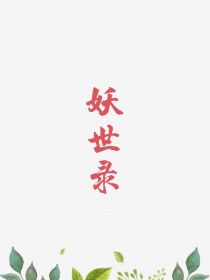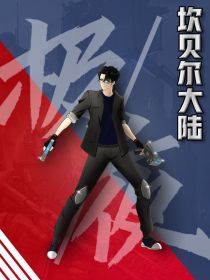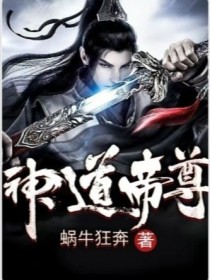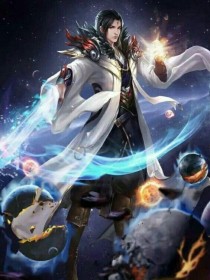第二十四章 追梦赤子心
On July 23,1921, No. 76 Xing ye Road, Shanghai (formerly 106 Wang zhi Road, French Concession, Shanghai); an epoch-making conference was held here. At the same time, it is also the advent of a new era of China's democratic revolution.
On the evening of July 30th, the sixth meeting was held at the First National Congress. The original topic was to elect the central government through the party's program and resolutions. Just a few minutes after the meeting, the French concession patrol house agent suddenly broke in and the meeting was interrupted.
Finally, in early August, a large number of delegates discussed and adopted the first program of the Communist Party of China; the promulgation of the Constitution of the Communist Party of China.
In 1924, the Chinese Kuomintang held its first National Congress; the year before the first National Party Congress (that is, from June 12 to 20, 1923), the Third National Congress of the Communist Party of China (that is. The communist party of China three).
After these two meetings (that is, the National Party and the Third National Congress of the Communist Party of China), the Kuomintang and the Communist Party formally established a united front.
After the National Party and the Third National Congress of the Communist Party of China, theChinese National Revolutionary Army and the Whampoa Army Officer School.
From 1926 to 1927, after the Kuomintang and the Communist Party united, the National Revolution flourished. Originally, it was thought that reunification was imminent. However, the Kuomintang Rightists headed by Jiang and Wang successively created white terror in Shanghai and Wuhan. At that time, the party's leading 。
At this time, the party has just been established, and if it is a little baby that has just been born, it has a serious lack of substantive experience in the revolution, the united front, and party building. At the same time, it is a "small white" for China's historical.
In August 1927, the communist party of china and its armed forces fired the first shot of resistance in Nanchang; it was zhu de, one of the top ten marshals of new china, who led the uprising.
After the rightists of Jiang Wang and other countries launched a counter-revolutionary coup, the great leaders Chairman Mao and Chen Bojun led the Workers and Peasants Red Army on the Hunan-Jiangxi border to carry out the first rural.
These two uprisings marked the beginning of the Chinese Communist Party's gradual maturity from naivety.
However, under the suppression of the reactionary Kuomintang government and the reactionary army, these uprisings led by the Communist Party failed. So the great man Chairman Mao took the Red Army to Jinggangshan; a few years later, Zhu De led his Red Army to Jinggangshan and joined Chairman Mao.
Since then, Zhu Mao has not separated.
From 1930 to 1934, in order to completely stifle (or destroy) the Communist Party and its armed forces, the Kuomintang reactionaries organized five encirclement and suppression campaigns, while the Red Army carried out five counter-encirclement campaigns under the leadership of the Communist Party.
Under the erroneous thinking of Wang Ming's "left-leaning and rash advance" doctrine, Li De and Bogu successively pursued the erroneous strategy of "military rash advance", which eventually evolved from ".
In October 1934, in order to preserve the central Red Army and the central backbone of the Communist Party of China, the CPC Central Committee had to decide to carry out the Long March.
The long march caused heavy losses to the red army of Chinese workers and peasants; in particular, the central red army, after the first world war in xiangjiang river, from the initial 80thousand surplus, only 30thousand surplus; casualties can not be tragic.
Fortunately, however, the basic strength of the Chinese revolution was preserved, and the party and the Chinese revolution were turned into safety.
On September 22,1937, the Kuomintang Central News Agency published the "Declaration of the Central Committee of the Communist Party of China to Promulgate the Cooperation.
As a result, the Red Army of workers and peasants once again put on the uniforms of the National Revolutionary Army, accepted the reorganization of the Kuomintang government, and.
After 15 years of hard struggle, the Chinese people, under the leadership of the Communist Party of China, won the struggle against foreign invasion at the expense of more than 35 million people.
In 1945, after Japan surrendered, the Chiang government played a trick and repeatedly invited Mr. Mao to Chongqing to negotiate the so-called "peace" issue; the Communist Party resolutely went to Chongqing to participate in Chiang's "Hongmen banquet" for the benefit of the general public.
In 1946, Chiang Kai-shek's government finally tore off the mask of hypocrisy of "peace" and launched a heavy attack on the liberated areas of the Central Plains.
Thus, the Chinese People's Liberation Army came into being; shouldered the heavy responsibility entrusted by history.
From 1948 to 1949, after three major battles, Chiang's ace army was almost wiped out by the Chinese People's Liberation Army, and Chiang Kai-shek's rule on the mainland was crumbling.
In April 1949, the Chinese People's Liberation Army crossed the Yangtze River and destroyed Chiang Kai-shek's rule on the mainland.
In September 1949, the first National Political Consultative Conference was held in Peiping.
At the beginning of the following month, Chairman Mao solemnly declared to the people of the whole country and the world on "The Central People's Government of the People's Republic of China was established today, and the Chinese people have stood up since then."
In 1950, Tibet was peacefully liberated; from 1950 to 1953, the Chinese People's Volunteers crossed the Yalu River to fight against the "American Emperor" who invaded North Korea.
After the end of the Korean War to Resist US Aggression and Aid Korea, the Chinese government began its first five-year industrial plan, and at the same time carried out socialist transformation of agriculture, handicrafts, capitalist industry and commerce.
In 1979, the Communist Party of China and the country ushered in new opportunities; Deng Gong's coming to power began a vigorous reform and opening up.
In 1997, the Chinese government took back sovereignty over Hong Kong; two years later, the Chinese government took back sovereignty over Macao from the Portuguese government.
Now, under the collective leadership of the party central committee in the new era of General Secretary Xi Jinping, china is no longer the weak country to be slaughtered.
On behalf of the Chinese director Yang domineering reply to the provocation of the United States! You are not qualified to say in front of the Chinese that you are talking to China from the position of strength.
终极改写2提示您:看后求收藏(同创文学网http://www.tcwxx.com),接着再看更方便。
相关小说
- 奇异妖世录
- 0.9万字2年前
- 哑舍——玄色
- 简介:哑舍里的古物,每一件都有自己的故事,承载了许多年,无人倾听,默然等待千年,只为再次相遇。
- 0.1万字2年前
- 坎贝尔大陆(冰羽Hoi)
- 简介:这是一个充斥着科技,玄幻,武道,魔法,修真以及原始力量的大陆。你可以看到御剑飞行的修真者一边拿着重机枪疯狂扫射一边使用出火球术轰炸丧尸。你可以看到巨大的机甲战士与身高8米的巨型类兽人激情互殴。你可以看到中世纪风格军团与未来科技军队互相冲锋的盛大场景。你可以看到强大的魔法师独自对抗数以万计的外星原始虫族。烟雾缭绕的修真圣地,未来风格的科幻都市,原始野性的贫瘠之地,隐秘奇幻的魔法森林。星际任务,恶魔炼狱,丧尸死岛,时间线旅行等许多奇幻冒险。在这个充满无限可能性的大陆上,什么都会发生。
- 22.3万字2年前
- 成为最强战神
- 简介:〔已签约〕禁止抄袭,在拥有战神的世界几位主角开启了无穷无尽的冒险。
- 7.2万字2年前
- 我为妖孽
- 简介:神若阻我,我必弑神;魔若挡我,我必屠魔,神魔无惧
- 0.9万字2年前
- 以灵筑天
- 简介:天道到底是什么,是独有的人性化还是一丝不苟的程序化,还是两者兼备?这个我们无从揭晓因为我们只有一次机会所以必须每一步做到万无一失
- 0.1万字2年前





